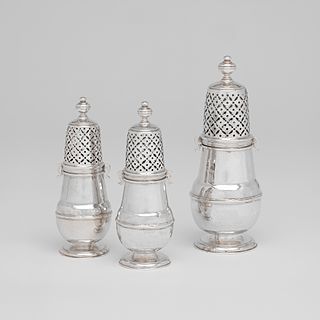Related Research Articles

The Sterling and Francine Clark Art Institute, commonly referred to as the Clark, is an art museum and research institution located in Williamstown, Massachusetts, United States. Its collection consists of European and American paintings, sculpture, prints, drawings, photographs, and decorative arts from the fourteenth to the early twentieth century. The Clark, along with the Massachusetts Museum of Contemporary Art and the Williams College Museum of Art (WCMA), forms a trio of art museums in the Berkshires. The institute also serves as a center for research and higher learning. It is home to various research and academic programs, which include the Fellowship Program and the Williams College Graduate Program in the History of Art, as well as one of the most distinguished research libraries in the country, with more than 295,000 volumes in over 72 languages. The Clark is visited by 200,000 people a year, and offers many educational programs for visitors of all ages throughout the year.

A fish slice is a kitchen utensil with a wide, flat blade with holes in it, used for lifting and turning food while cooking. It may be called a slotted spatula or a turner or flipper. The utensil was originally designed as a serving piece rather than a cooking implement.

The Kalo Shop was the "leading maker" of Arts and Crafts movement silver in Chicago. The shop and affiliated Kalo Arts and Crafts Community House, a practicing school and workshop noted for silver and jewelry in nearby Park Ridge, Illinois, were founded in 1900 by a group of six young women who had trained at the Art Institute of Chicago. Clara Pauline Barck Welles (1868-1965) was the group's leader and most notable member. The other founders were: Bertha Hall, Rose Dolese, Grace Gerow, Ruth Raymond, and Bessie McNeal.

A toilet service is a set of objects for use at the dressing table. The term is usually reserved for large luxury sets from the 17th to 19th centuries, with toilet set or vanity set used for later or simpler sets. Historically, services were made in metal, ceramics, and other materials, for both men and women, though male versions were generally much smaller. The rich had services in gold, silver, or silver-gilt. The contents vary, but typically include a mirror, one or more small ewers and basins, two candlesticks, and an assortment of bowls, boxes, caskets, and other containers. One or more brushes and a pin-cushion, often as a top to a box, are often included. The sets usually came with a custom-made travelling case, and some services were especially designed for travelling.

Anne Tanqueray née Willaume (1691–1733) was an English silversmith, active from 1724–1733.
Alice Burrows was an English silversmith.
Sarah Buttall was an English silversmith.
Magdalen Feline was an English silversmith.
Mary Gould was an English silversmith.
Sarah Holaday was an English silversmith. Her last name is sometimes given as Holladay or Holiday, while her first name is sometimes given as Susan.
Elizabeth Morley was an English silversmith.
Elizabeth Muns was an English silversmith.
Hannah Northcote was an English silversmith.
Mary Rood or Roode was an 18th-century English silversmith.
Ann Robertson was an English silversmith.
Jane Williams was an Irish silversmith.
Elizabeth Tookey was an English silversmith.

Anne Smith was an English silversmith working in partnership with Nathaniel Appleton.
Dorothy Sarbitt was an English silversmith; she also produced work under the name Dorothy Mills.

Adrian Bancker, also known as Adriaan or Adrianus Bancker, was a prominent silversmith in New York City.
References
- 1 2 Philippa Glanville; Jennifer Faulds Goldsborough; National Museum of Women in the Arts (U.S.) (1990). Women Silversmiths, 1685–1845: Works from the Collection of the National Museum of Women in the Arts . Thames and Hudson. ISBN 978-0-500-23578-2.
- ↑ Sterling and Francine Clark Art Institute; Beth Carver Wees (1997). English, Irish, & Scottish Silver at the Sterling and Francine Clark Art Institute. Hudson Hills. pp. 108–. ISBN 978-1-55595-117-7.
- ↑ "Three Casters". The Art Institute of Chicago. Retrieved 10 March 2019.
- ↑ "The Israel Museum, Jerusalem". www.imj.org.il. Retrieved 10 March 2019.
- ↑ "Bonhams : A Queen Anne silver chamberstick by Alice Sheene, London 1704". www.bonhams.com. Retrieved 10 March 2019.
- ↑ "Alice Sheen SIlver Dog-Nose Spoon". www.antiquesilverspoons.co.uk. Retrieved 10 March 2019.
- ↑ Francis Haslewood (1897). Church Plate in the County of Suffolk. pp. 25–.